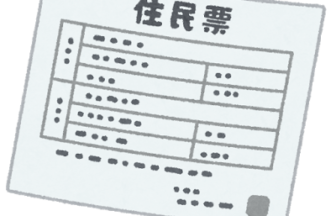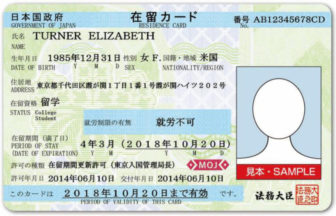The first thing you have to decide before you come to Japan is where you live.
That’s where the rent comes in.
Rent varies greatly depending on the area you live in.
For example, Tokyo is the region with the highest rent in Japan.
Ikebukuro station is one of the most expensive places in Tokyo.
If you rent an apartment around Ikebukuro Station, the average monthly fee is 80,000 yen. (1k)
Poorly, if you rent an apartment in Gunma prefecture, you can rent it for an average of 36,000 yen.
So if you want to keep your rent cheap, you need to think carefully about where you live.
This table shows the average rent price by region.
| Ranking | Prefectures | Average price (yen) |
| 1 | Tokyo | 78,552 |
| 2 | Kanagawa | 68,847 |
| 3 | Chiba | 59,663 |
| Four | Saitama | 57,706 |
| Five | Osaka | 54,349 |
| 6 | Hyogo | 53,882 |
| 7 | Kyoto | 53,354 |
| 8 | Aichi | 51,634 |
| 9 | Shizuoka | 51,579 |
| 43 | Miyazaki | 39,231 |
| 44 | Shimane | 39,045 |
| 45 | Kagoshima | 38,718 |
| 46 | Akita | 38,321 |
| 47 | Aomori | 37,485 |
* 2013 version
The next thing to decide is what type of accommodation to choose.
Basically, students studying in Japan choose the following four types of accommodation.
price
| home stay | Apartment | share-house | Airbnb | |
| rent | 130,000 | 65,000 | 50,000 | 150,000 |
| Maintenance fee | 0 | 6,000 | 5,000 | 0 |
| breakfast | 0 | 20,000 | 20,000 | 2,000 |
| lunch | 10,000 | 10,000 | 10,000 | 10,000 |
| electric bill | 0 | 3,000 | 0 | 0 |
| water bill | 0 | 2,000 | 0 | 0 |
| gas | 0 | 3,000 | 0 | 0 |
| total | 14,0000 | 10,9000 | 95,000 | 160,2000 |
* Price = Yen
* These charges are average.
home stay
Homestay is to rent a family room in Japan and live together.
Basically, homestay comes with 3 meals.
Benefits : The benefit of homestay is that you can experience native Japanese.
Also, it is perfect for those who want to experience the real life of Japan.
There is a big advantage for those who want to improve their Japanese quickly.
Disadvantages : Some homestays have curfew and you cannot enter or leave the house in your free time.
In addition, having meals has the disadvantage of not being able to choose what you want to eat.
Apartment
Japanese apartments are very clean and very sturdy.
Therefore, even if an earthquake strikes, it rarely collapses.
Benefits : You can have your own room so you can have a private space.
Disadvantages : The major disadvantage is that you do not have the opportunity to speak Japanese because there are no people living with you.
You also have to pay the utility bill yourself.
share-house
Share houses are roughly divided into two types.
The first is that you can have your own room.
The second type is to share the room.
Both share the kitchen and bathroom.
Advantages : Many people who live together are foreigners and can share culture.
If you can find a share house with Japanese people, you can study Japanese.
Disadvantages : Often less private time.
Also, depending on the share house, you may have to do housework jointly.
Airbnb

If you have a short stay, Airbnb is also a good option.
I myself used it in Canada, but the customer support helped me a lot.
If I couldn’t get in touch with the owner, the support helped me desperately.
Advantages : The advantage is that you can stay for a short period of time and make reservations relatively easily.
Disadvantages : Prices tend to be higher than other accommodation types.
advice
As you can see, it turns out that which type of accommodation is best depends on the purpose.
If you want to improve your Japanese first, homestay is the best accommodation type.
On the other hand, if saving money is a priority, share house is the best option.
Think carefully about where to stay according to your purpose.
We also provide accommodation information, so please take a look at the link below.
If you want to take care of all the troublesome procedures, please click here.
Please feel free to contact us if you have any concerns about studying in Japan.









この記事へのコメントはありません。